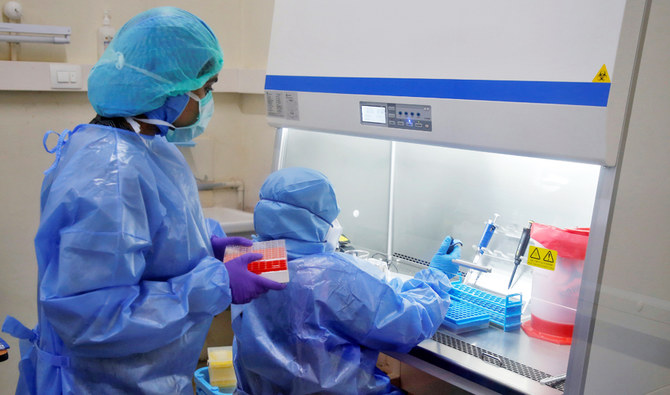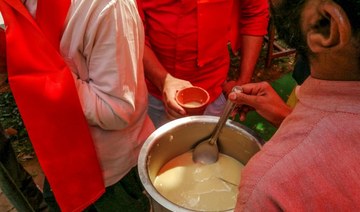KOCHI: While the coronavirus disease (COVID-19) is posing a great challenge to India’s health care system and the government’s response has already upended the livelihoods of millions of people, the country’s southern state of Kerala is breaking the chain of the virus.
The state’s Health Minister, K. K. Shailaja, told Arab News how she managed to handle the crisis.
“This is the result of our planning. We started preparing when the news about the virus started coming from China,” Shailaja said in an exclusive interview on Friday. “Since lots of our students study in Wuhan and our people also travel there for business, I thought: ‘Sooner or later the virus is going to come to us too.’ Our experience of fighting with Nipah virus that came from Africa last year also alerted us.”
She said her ministry started preparing for the outbreak three months ago. “This alertness helped us in fighting the coronavirus. Kerala today is in a position to flatten the curve of COVID-19 as a result of this readiness.”
According to the state’s Finance Minister, T.M. Thomas Issac, the recovery rate in Kerala is nearly 50 percent, while India’s average stands at 11 percent. The mortality rate among those who contract the disease is 0.5 percent in the state, compared with the Indian average of 3.4 percent.
When 93-year-old Thomas and 88-year-old Mariyamma tested positive for coronavirus in early March, nobody hoped that they would survive, but after spending a month at Kerala’s Kottayam Medical College, the couple went home, bucking a worldwide trend where the largest number of COVID-19 victims are elderly people.
Their recovery became all the more pronounced because both suffered from age-related conditions — hypertension and diabetes. Their recovery drew national attention to Kerala’s pandemic response.
“It was our preparedness, our planning and medical facilities that secured a new life for the elderly couple despite having other medical complication. It was a big victory for us,” Shailaja said.
She has become a hero in the state for her tireless efforts in addressing the health crisis.
FASTFACT
Kerala was one of the first states to go into lockdown, a day before a similar measure was imposed nationwide on March 24.
While the total coronavirus cases in India touched 14,000 with 500 related deaths, Kerala saw only one positive case on Friday. Since January, Kerala has reported 399 coronavirus cases. Most of the patients have recovered and only one has succumbed to the disease.
Kerala is the only state in India which is run by socialists. Shailaja said that the state’s first socialist government in 1957 laid the foundation of the public health infrastructure, and for solid health care facilities.
“Today, all districts of the state have 250 beds exclusively reserved for coronavirus cases. We have our plan B and C also ready in case the pandemic takes a dangerous turn,” she said.
Kerala was one of the first states to go into lockdown, a day before a similar measure was imposed nationwide on March 24. It was also one of the first states in India that started promoting physical distancing, testing and hygiene measures to prevent the coronavirus disease from spreading.
“We are planning to lift restrictions partially in most of the 14 districts. Only four districts are hotspots of coronavirus in the state. Two are without any virus cases,” the minister told Arab News.
The state is now preparing to receive a large number of nationals returning from other Indian states and from Gulf countries ahead of the relaxation of some lockdown measures.
“If a large number of people come from outside, it would be a problem, but we are preparing ourselves for that. We will ask all of them to strictly undergo quarantine,” she said.
















